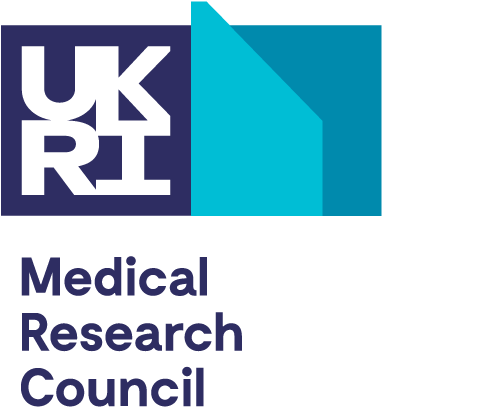The Medicines and Healthcare products Regulatory Agency (MHRA) consultation on the future regulation of medical devices in the UK closed in November 2021. The response from MHRA (PDF, 1.3MB) was published in June 2022. MHRA has updated their information around the Implementation of the Future Regulations to reflect that the government is now aiming for core aspects of the future regime for medical devices to apply from 1 July 2025. The Implementation of the Future Regulations website also contains information about any transitional arrangements.
Know the basics
Knowing whether your product is a medical device isn’t always easy, it depends on legal definitions which differ within the UK, and between Great Britain and the EU.
In order to place a medical device or in vitro diagnostic (IVD) on the market, it needs a mark to show that it conforms to relevant regulatory requirements (mark of conformity), this is a CE mark, CE NI mark, or UKCA mark – depending on the regulations and market.
What manufacturers need to do to obtain a mark of conformity depends on the device risk class. For low risk devices and diagnostics, manufacturers can self-assess; high risk ones need conformity assessment by an independent body, a notified body or a UK approved body.
As an academic researcher you are unlikely to manufacture the device or diagnostic and will not therefore apply for a mark of conformity yourself. However, academic research will need to conform to relevant regulations in order to accelerate translation and commercialisation. This is likely to include having an appropriate quality management system in place. Work with your university translation office or commercial partner to determine what this means for you.
There are exemptions for in-house manufacture, also known as the health institute exemption in new EU regulations.
A clinical study that trials a device in or on a person, is called a clinical investigation.
A study that validates an in vitro diagnostic for medical use is a performance evaluation.
MHRA regulates devices and in vitro diagnostics in the UK; they must be notified of clinical investigations and performance evaluations. MHRA also oversees UK approved bodies.
Identifying and managing the risks associated with your trial is vital for the safety of all participants, staff and the successful completion of your study. You can find guidance on risk management in experimental medicine.
UK medical device regulation
MHRA’s overview of medical device regulation in the UK outlines the differing requirements for Great Britain and Northern Ireland (where the new EU medical devices regulation applies).
If you are in a position to market your device before 30 June 2023, you may wish to comply with EU medical devices regulation (EU MDR) or EU in vitro diagnostic regulation (EU IVDR) in order to gain a CE mark and access both the UK and EU markets. EU notified bodies and CE marking will continue to be recognised by the MHRA up to this date.
All medical devices and IVDs which are to be placed on the UK market need to be registered with the MHRA. The manufacturer is responsible for registration.
Requirements for marketing in Great Britain (Scotland, England, Wales)
The Medical Devices Regulations 2002 apply to manufacturers of medical devices, active implantable devices and in vitro diagnostics, and to academics who intend to commercialise.
Guidance to help you determine if your product is a medical device in Great Britain:
- overview of MHRA legal compliance guidance for definitions of: medical device, active implantable medical device and in vitro diagnostic medical device
- EU guide to classifying your medical device
- Borderlines with medical devices and other products in Great Britain for guidance on whether or not your product is a medical device
- Borderlines between medical devices and medicinal products in Great Britain for guidance on whether your product is a medical device or a medicinal product
- Medical devices: software applications (apps) helps determine if your software or app is a medical device or an in vitro diagnostic, and which class
Legal compliance guidance for Great Britain
For compliance requirements, read the MHRA:
- detailed guidance on how to comply with the legal requirements for the Great Britain market
- guidance around conformity assessment and UKCA marking
- specific guidance for in vitro diagnostic
- summary of requirements for Class 1 medical devices
- guidance on exemptions for in house manufacture: for medical devices and for in vitro diagnostics (section 2.7 and appendix)
Requirements for Northern Ireland and EU
Northern Ireland and the EU implemented the new EU Medical Devices Regulation (EU MDR) in May 2021 and the new EU in vitro diagnostic regulation (EU IVDR) will apply from 26 May 2022. The following resources provide help with compliance:
- MHRA guidance for Northern Ireland implementation of EU MDR and EU IVDR and their interactive guide
- MHRA guidance on health institute exemption under EU MDR and EU IVDR
- EU Commission factsheets to help navigate EU MDR and EU IVDR
- RegMetrics, step by step support with the EU regulatory requirements
Two publications about companion diagnostics under the new IVDR:
- Companion diagnostics: requirements under the new IVDR
- Implementing the EU in vitro diagnostic regulation – a European regulatory perspective on companion diagnostics
Clinical investigations of medical devices guidance – UK
MHRA’s clinical investigations of medical devices – guidance for investigators (PDF) gives an overview for investigators involved in the clinical investigation of unmarked medical devices.
MHRA’s clinical investigations of medical devices – guidance for manufacturers (PDF) has more detail on UK requirements, outlines when you need to do a clinical investigation, addresses special circumstances and things to consider when planning a clinical investigation.
MHRA needs to be notified of the intention to run a clinical investigation for a medical device. This must be done at least 60 days in advance. An overview of the process can be found in Notify the MHRA about a clinical investigation for a medical device.
See also MHRA guidance on in-house exemptions for notification of clinical investigations.
Clinical Investigations of medical devices – compiling a submission to MHRA details how to make an application in IRAS. Including specific guidance on the requirements for software (like standalone software or software incorporated into a medical device).
When completing your application in IRAS, please refer to guidance under the green ‘i’ buttons in the project filter to help you correctly categorise your study.
Guidance on demonstrating the biological safety of a medical device can be found in Clinical investigations of medical devices – biological safety assessment (PDF).
Clinical investigations of medical devices – statistical considerations (PDF) offers guidance on the design for clinical investigations, for example considerations for sample size and the study population.
Performance evaluation of an in vitro diagnostic – UK
Performance evaluations can be done by comparing the in vitro diagnostic under investigation with an established method or device with regards to sensitivity, specificity and ability to meet clinical needs. Instruments, apparatus, appliances, materials or other articles which are intended to be used for research purposes without any medical objective are not regarded as devices for performance evaluation. For more on performance evaluations, see section 2.5 of In vitro diagnostic medical devices: guidance on legislation.
Companion diagnostics – trials which determine the clinical performance of an assay (biomarker validation) are performance evaluation studies.
All IVD performance evaluation studies need to be registered with MHRA.
Other sources of guidance and scientific publications
The NHS Health Research Authority (HRA) has various e-learning modules, one of which covers medical devices.
The National Institute for Health and Care Research offers advice for medical technologies and in vitro diagnostic tests.
Guidance from the British Standards Institution
The British Standards Institution (BSI) is a UK approved body and EU notified body for medical devices. You can read more about UKCA marking in BSI’s gaining market access in the UK. You can also learn about CE marking in BSI’s CE marking for medical devices.
BSI’s medical devices on demand webinars may also be of interest, for example those around performance evaluation of devices under EU medical devices regulation and EU in vitro diagnostic regulation and UKCA and post Brexit changes under “market access requirements”. To watch the on demand webinars you will need to register for free.
The BSI white papers are also of interest for the EU regulations and an interesting one about artificial intelligence (AI) (PDF, 1.56MB) and how it differentiates from traditional medical devices and medical software.
Software and AI guidance
Medical devices: software applications (apps), MHRA guidance to help determine if your software/app is a medical device or an in vitro diagnostic, and which class.
Learn about MHRA’s software and AI as a medical device change programme.
Standalone medical device software: the evolving regulatory framework by McCarthy and Lawford 2015, introduces the regulatory framework in the US and EU and includes six examples of standalone software classed as a medical device.
If you are working on AI for healthcare then the NHS AI Lab provides guidance on AI development, case studies and challenges faced by others and how they overcame them.
These publications highlight the importance of diversity of the data used to develop AI algorithms to avoid any bias, an opinion piece in the American Scientific and Geographic distribution of US cohorts used to train deep learning algorithms by Kaushal and others, September 2020.
For help with health data discovery and access, see Health Data Research UK’s Innovation Gateway and our Health Data Access Toolkit.


